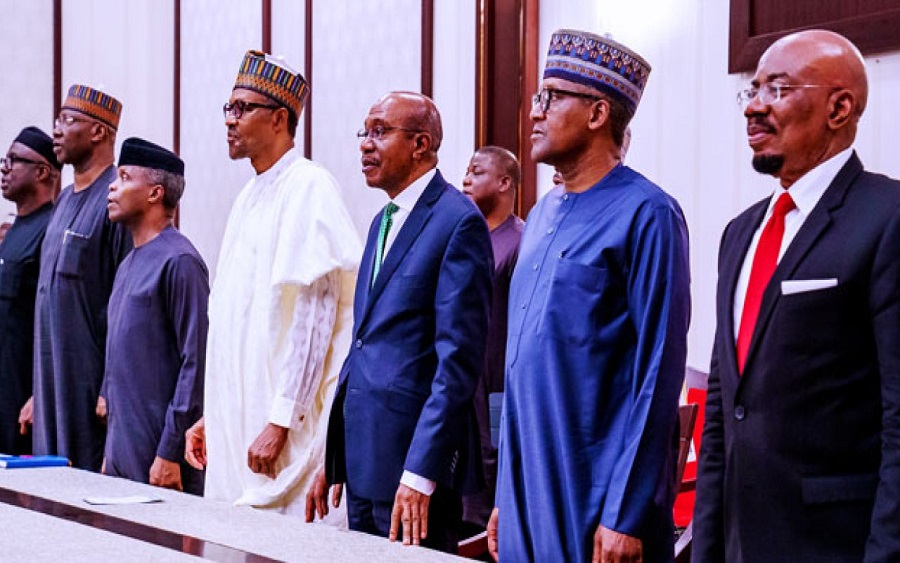President Muhammadu Buhari has warned the Central Bank of Nigeria against implementing any plans geared towards providing forex for the importation of “food items and fertilizers” into the country.
The President made this remark via his Twitter handle on Thursday, September 10th as he presided over the National Food Security Council meeting yesterday at the State House, Abuja.
READ: CBN removes “third parties” from buying forex routed through Form M
According to a series of tweets from the president’s Twitter handle, “I am restating it that nobody importing food or fertilizer should be given foreign exchange from the Central Bank. We will not pay a kobo of our foreign reserves to import food or fertilizer. We will instead empower local farmers and producers.”
I am restating it that nobody importing food or fertilizer should be given foreign exchange from the Central Bank. We will not pay a kobo of our foreign reserves to import food or fertilizer. We will instead empower local farmers and producers.
— Muhammadu Buhari (@MBuhari) September 10, 2020
READ: Investors flee Nigerian Stocks as FDI and FPI dips
He also claimed that Nigeria has “a lot of able-bodied young people willing to work, and agriculture is the answer.”
Just last week the CBN issued emergency forex importation approvals for companies for the importation of 262,000 tonnes of Maize. The companies are Wacot Limited, Chi farms Limited, Crown Flour Mills Limited, and Premier Feeds Company Limited. It is unclear if this statement by the president affects these plans.
Download the Nairametrics News App
Between the lines: These tweets appear to be clear instructions to the CBN to resist any plans to provide forex to importers of forex into the country for importation of food items.
- The government’s economic policy has centered mainly on food and agriculture security even as prices of food remains at all-time high.
- Latest inflation numbers indicate food inflation rose by 15.48% in July 2020 compared to 15.18% in June 2020.
- This represents a 0.34% increase compared to June figures. Also, on a month-on-month basis, the food sub-index increased by 1.52% in July 2020, up by 0.04% points from 1.48% recorded in June 2020.
READ: CBN claims no immunity for Emefiele as it fires back at NESG


















